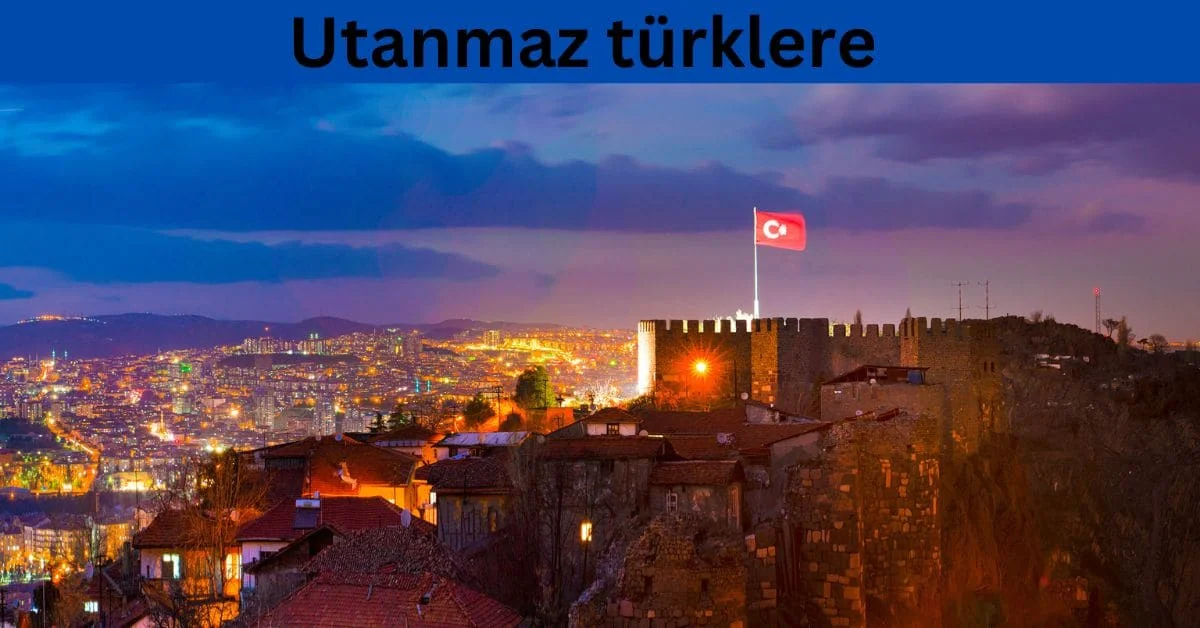Language is a powerful tool that reflects societal attitudes, cultural identities, and often, interwoven complexities of pride and criticism. The phrase “utanmaz Türklere” (shameless Turks) is an example of how such language can carry layers of meaning, invoking reactions ranging from outrage to introspection.
Historical and Cultural Context
Turkish society, like many others, has a rich tradition of self-critique and humor. Through centuries, this has been expressed in various forms—be it through Nasreddin Hodja tales, Karagöz shadow plays, or modern satirical media. The phrase “utanmaz Türklere,” when viewed within this context, might reflect moments of societal frustration, self-awareness, or commentary on behaviors perceived as unbecoming or contradictory to cultural values.
For example, a headline accusing “utanmaz Türklere” of corrupt practices, unethical behavior, or neglect of social duties might not solely aim to offend but to provoke thought or demand accountability. In such cases, the phrase becomes less about shaming individuals and more about addressing systemic or collective issues.
Controversial Uses and Misinterpretations
While phrases like this can encourage dialogue, they also risk being weaponized to stereotype or demean. Critics argue that such terms can perpetuate negative images and undermine national unity, particularly when used by external parties or in polarizing debates. For instance, diaspora communities often navigate dual identities, and hearing their heritage referred to with derogatory terms can feel alienating or stigmatizing.
Satire and Humor in Modern Turkey
In Turkey’s vibrant pop culture, the art of exaggeration often blurs the line between criticism and humor. Shows like Güldür Güldür and political cartoons highlight societal issues by poking fun at everyday life. Here, “utanmaz Türklere” could appear in jest, reflecting an endearing self-critique rather than malice.
However, humor must tread carefully, as the balance between critique and offense varies across audiences. What resonates as thought-provoking for one person might feel disparaging to another, particularly in an increasingly polarized world.
Promoting Constructive Dialogue
The real challenge lies in turning such provocative terms into catalysts for positive change. Instead of dismissing phrases like “utanmaz Türklere” as inflammatory, they can be reframed to inspire meaningful conversations about ethics, accountability, and shared cultural values.
For instance, in response to criticisms encapsulated by this phrase, many grassroots organizations in Turkey are working tirelessly to combat corruption, promote transparency, and encourage civic responsibility. These initiatives reflect the enduring resilience and adaptability of Turkish society, emphasizing actions over labels.
Conclusion
The phrase “utanmaz Türklere” may provoke strong reactions, but it also serves as a mirror reflecting the multifaceted nature of cultural identity and criticism. Whether used in jest, critique, or frustration, its power lies in the conversations it sparks. By engaging with such terms thoughtfully, societies can address the underlying issues they highlight and foster greater understanding and progress.
This article encourages dialogue rather than conflict, focusing on how provocative language can lead to reflection and change. Let me know if you’d like it tailored for a specific audience or medium!
FAQs
Q1: What does “Utanmaz Türklere” mean?
It translates to “shameless Turks” in English. The term can be used to criticize perceived unethical, bold, or inappropriate behavior among individuals or groups. Its tone and intent can vary widely depending on the context—ranging from satire to serious critique or insult.
Q2: Is “Utanmaz Türklere” offensive?
It can be offensive, especially if used in a derogatory or accusatory manner. However, in some contexts, it may be used humorously, ironically, or in self-criticism, reflecting societal issues rather than targeting individuals.
Q3: Where is this phrase commonly used?
The phrase might appear in:
- Satirical Content: Comedy shows, cartoons, or social commentary.
- Social Media: To criticize behaviors or trends.
- Everyday Conversations: As hyperbole or frustration in casual discussions.
Q4: Is the phrase unique to Turkish culture?
The phrase is rooted in Turkish, but its concept—criticism of behavior perceived as shameless—is universal. Many cultures have similar terms or expressions used for critique or satire.
Q5: Why do people use this phrase
It is often used to:
- Highlight social or ethical concerns.
- Express frustration about actions seen as dishonorable.
- Criticize hypocrisy or double standards.
- Add humor or satire to commentary.
Q6: Can this term be reclaimed positively?
Yes, provocative terms can be reclaimed or reframed. For instance, communities can use such terms to spark constructive dialogue about cultural, ethical, or societal improvements.
Q7: Are there similar phrases in Turkish?
Yes, Turkish has many idiomatic expressions for critique or humor, such as:
- “Yüzsüz” (shameless).
- “Ar damarı çatlamış” (someone without moral boundaries).
- “Ne yüzle geliyorsun?” (how dare you?).
These are often used metaphorically to address behavior.
Q8: How does Turkish culture view criticism and humor?
Turkish culture has a rich tradition of self-critique, humor, and satire. Folk tales, shadow plays, and modern media often reflect societal issues in a way that blends humor with criticism. While strong words may be used, they are often meant to provoke thought or bring attention to problems.
Q9: Is using “Utanmaz Türklere” appropriate in public discourse?
It depends on the context. In satire or social critique, it can spark debate, but care should be taken not to offend or alienate audiences. Respect and understanding are key when discussing sensitive topics.
Q10: How can provocative terms like this be used constructively?
Such phrases can be used to:











